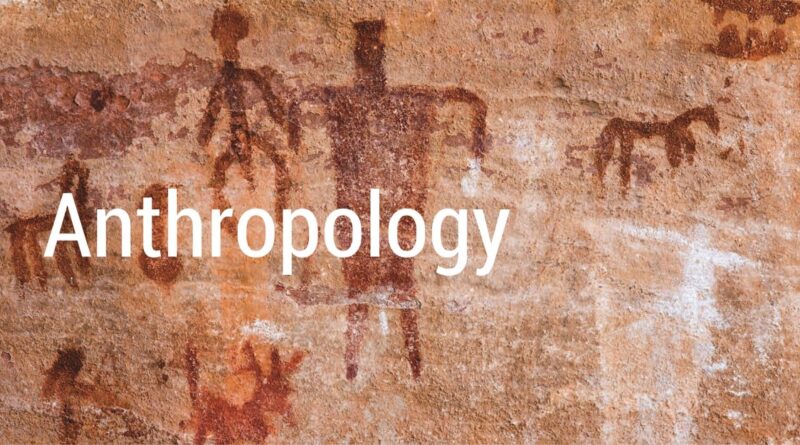Anthropology Optional Syllabus For UPSC Mains
Anthropology is the study of Culture, OR
Anthropology is the study of other fellow/Helps to understand Other, OR
Anthropology is the study of Sociological Dimension of Apparently Biological Phenomena, OR
Anthropology tries to know the origins of Culture
Syllabus of Anthropology
Anthropology Optional Syllabus For Paper I:
|
Syllabus for Anthropology Optional Paper-1 |
|
|
1.1 |
Meaning, scope, and development of Anthropology. |
|
1.2 |
Relationship with other disciplines: History, Economics, Sociology, Psychology, Political Science, Life Science, Medical Science. |
|
1.3 |
Main branches of Anthropology, their scope, and relevance:
|
|
1.4 |
Human Evolution and the emergence of Man:
|
|
1.5 |
Characteristics of Primates;
|
|
1.6 |
Phylogenetic status, characteristics and geographical distribution of the following:
|
|
1.7 |
The biological basis of life:
|
|
1.8 |
a) Principles of Prehistoric Archaeology. Chronology: Relative and Absolute Dating methods. b) Cultural Evolution- Broad Outlines of Prehistoric cultures:
|
|
2.1 |
The Nature of Culture:
|
|
2.2 |
The Nature of Society:
|
|
2.3 |
Marriage:
|
|
2.4 |
Family:
|
|
2.5 |
Kinship:
|
|
3 |
Economic organization:
|
|
4 |
Political organization and Social Control:
|
|
5 |
Religion:
|
|
6. |
Anthropological theories:
|
|
7. |
Culture, language and communication:
|
|
8. |
Research methods in anthropology:
|
|
9.1 |
Human Genetics
|
|
9.2 |
Mendelian genetics in man-family study single factor, multifactor, lethal, sub-lethal and polygenic inheritance in man. |
|
9.3 |
Concept of genetic polymorphism and selection
|
|
9.4 |
Chromosomes and chromosomal aberrations in man, methodology.
|
|
9.5 |
Race and racism
|
|
9.6 |
a) Age, sex and population variation as genetic marker- ABO, Rh blood groups, HLA Hp, transferring, Gm, blood enzymes. b) Physiological characteristics-Hb level, body fat, pulse rate, respiratory functions and sensory perceptions in different cultural and socio-economic groups. |
|
9.7 |
Concepts and methods of Ecological Anthropology.
|
|
9.8 |
Epidemiological Anthropology:
|
|
10. |
Concept of human growth and development:
|
|
11.1 |
Relevance of menarche, menopause and other bioevents to fertility. Fertility patterns and differentials. |
|
11.2 |
Demographic theories- biological, social and cultural. |
|
11.3 |
Biological and socio-ecological factors influencing fecundity, fertility, natality and mortality. |
|
12 |
Applications of Anthropology:
|
Anthropology Optional Syllabus For Paper II:
|
Syllabus for Anthropology optional Paper-II |
|
|
1.1 |
Evolution of the Indian Culture and Civilization
|
|
1.2 |
Palaeo
|
|
1.3 |
Ethno-archaeology in India:
|
|
2. |
Demographic profile of India
|
|
3.1 |
The structure and nature of the traditional Indian social system
|
|
3.2 |
Caste system in India
|
|
3.3 |
Sacred Complex and Nature
|
|
3.4 |
Impact of Buddhism, Jainism, Islam and Christianity on Indian society. |
|
4. |
Emergence and growth of anthropology in India-Contributions of the 18th, 19th and early 20th Century scholar-administrators. Contributions of Indian anthropologists to tribal and caste studies. |
|
5. 1 |
Indian Village:
|
|
5.2 |
Linguistic and religious minorities and their social, political and economic status. |
|
5.3 |
Indigenous and exogenous processes of socio-cultural change in Indian society: Sanskritization, Westernization, Modernization;
|
|
6.1 |
Tribal situation in India
|
|
6.2 |
Problems of the tribal Communities
|
|
6.3 |
Developmental projects and their impact on tribal displacement
|
|
7.1 |
Problems of exploitation and deprivation of Scheduled Castes, Scheduled Tribes and Other Backward Classes.
|
|
7.2 |
Social change and contemporary tribal societies:
|
|
7.3 |
The concept of ethnicity;
|
|
8.1 |
Impact of Hinduism, Buddhism, Christianity, Islam and other religions on tribal societies. |
|
8.2 |
Tribe and nation state – a comparative study of tribal communities in India and other countries. |
|
9.1 |
History of administration of tribal areas, tribal policies, plans, programmes of tribal development and their implementation. The concept of PTGs (Primitive Tribal Groups), their distribution, special programmes for their development. Role of N.G.O.s in tribal development. |
|
9.2 |
Role of anthropology in tribal and rural development. |
|
9.3 |
Contributions of anthropology to the understanding of regionalism, communalism, and ethnic and political movements. |
Booklist for Anthropology Optional for UPSC
Here is the recommended booklist for Anthropology Optional for UPSC:
|
Paper |
Books |
|
Paper-1 |
|
|
Paper-2 |
|

